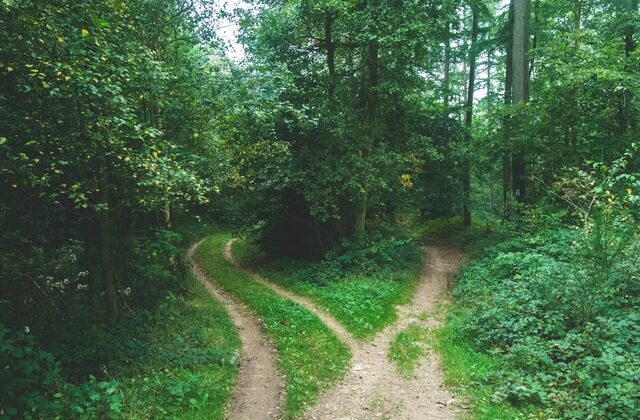

Daily I repeat to myself, “I have depression, depression does not have me.”
And I have been fortunate to have help reinforcing that idea. From medicine management, WRAP, SMART Recovery, the Change Triangle, and more, I have tools. And I have peer support. All of this has helped me gain a clearer perspective on depression and how it has altered the trajectory of my life.
Depression has been at the heart of most of my major decisions that have gone sideways.
After 27 months of facing my depression, I have gained much confidence in my ability to recognize triggers. Using WRAP, I have a clear picture of what I look like when I am well. I also have a clear idea of what I look like when things begin to go wonky.
Luckily, I have not slipped past this point since being in the hospital.
Pulling out my wellness recovery action plan, I begin to use the activities on my personal written list. Doing so helps me stay away from the drain. In the first few months after acknowledging I have depression, having even a bit of a bad day was frightening.
Was this a sign I am going back to the depths of the abyss?
I now recognize that everyone has good days and off days. Having an off day doesn’t mean I will be circling the drain by tonight. While I know and believe that now, it was harder to see having just climbed out of the depths. Time has put my MDD in a bit of perspective.
However, having an extremely clear, recent experience is a tremendous motivational tool.
Coming out of my depressive episode, I knew what the bottom felt like. More to the point, I knew at the bottom, I wasn’t feeling anything. It was just me, depression, and the wall I was up against. I got through each day in some fashion, my goal was to find a reason to go to bed as early as possible.
Even if I couldn’t fall asleep, I felt being in bed was a safe place.
As I continue my life with depression, I am still a student of tools I can use to keep depression from returning. Or at least, using the tools to minimize the effects and keep depression out in the open. For me, keeping secrets was one thing that always made, and still makes depression happy.
Now I am studying the “impact of depression on decision-making (Cambridge.org/psm).”
This scholarly study from Cambridge, and many others, are helping me with the challenges of depression. It turns out there has been much research conducted on depression and decisions. I also found a study titled Depression and decision-making capacity for treatment or research: a systematic review. And I have collected links to several dozen additional scholastic studies on this topic.
So far, I cannot find a study that clearly identifies my role in making decisions with depression.
I am not trying to shift blame for the results of my decisions. In the end, I made them, and I know I have lived and will continue to live with the consequences.
What I want to know is, would I have made the same decisions if I did not have major depressive disorder MDD?
There is clear evidence that depression impacts one’s decision-making. Quoting the Cambridge study, “depression is characterized by impaired executive function, difficulty sustaining attention, and memory problems – including trouble recalling details from encoding, and loss of positive memory bias typically seen in healthy adults.”
My search is for the relationship between the decisions I made and depression.
What causes me to choose paths, that to the normal person would be clearly not in my best interest? Why would I then become secretive about making those choices? And when the path didn’t work out, why was I left alone to clean it up?
Why was depression not taking any credit for the decision we made and the havoc it created?
My peer support group leader suggested a book that just came in the mail. After I read through it, I am hoping to find some answers, or at least find the next step to understanding this.







Depression kills you from within. It’s a situation when you look normal to the world, but something is killing you from inside.
Many people do not see the internal struggle those of us with depression endure.
Some days, I expend all of my energy just to look normal.
It’s exhausting.